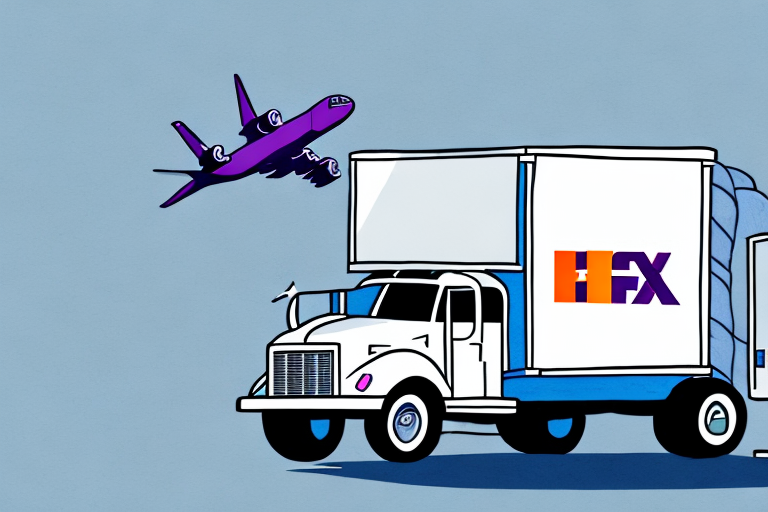As an e-commerce business owner in the pharmaceutical industry, choosing the right shipping carrier is crucial to the success of your distribution process. With so many options available, it can be difficult to determine which carrier is the best fit for your business needs. This article will provide an in-depth analysis of the top 10 parcel shipping carriers for pharmaceutical distribution e-commerce businesses, taking into account factors such as unique shipping requirements, carrier options for cold chain shipping, benefits and drawbacks of each carrier, and more.
Factors to Consider When Choosing a Shipping Carrier for Pharmaceutical E-Commerce Businesses
When selecting a shipping carrier for your pharmaceutical e-commerce business, there are several factors to consider. These include the carrier’s reliability, transit time, cost, tracking capabilities, and customer service. Additionally, it’s important to make sure that the carrier is aware of the unique requirements of shipping pharmaceutical products, such as temperature control and proper documentation.
Another important factor to consider when choosing a shipping carrier for your pharmaceutical e-commerce business is their experience in handling hazardous materials. Many pharmaceutical products are considered hazardous materials due to their potential to cause harm if not handled properly. It’s crucial to ensure that the carrier you choose has the necessary certifications and training to safely transport these materials. Failure to do so can result in fines, legal issues, and damage to your business’s reputation.
Understanding the Unique Shipping Requirements of Pharmaceutical Products
Pharmaceutical products have specific shipping requirements that differ from other products. They usually require temperature-controlled shipping, keeping them within a range of 2-8°C during transit. In addition, they must be packaged appropriately to ensure they remain secure and safe during the shipping process. These requirements are necessary to prevent any damage to the pharmaceutical products during transit and to maintain their efficacy.
Another important aspect of shipping pharmaceutical products is ensuring that they are transported in compliance with regulatory requirements. Different countries have different regulations regarding the transportation of pharmaceutical products, and it is essential to comply with these regulations to avoid any legal issues. Failure to comply with these regulations can result in fines, product recalls, and damage to the reputation of the company.
Moreover, the shipping of pharmaceutical products requires careful planning and coordination. It involves multiple stakeholders, including manufacturers, distributors, logistics providers, and regulatory authorities. Each stakeholder has a specific role to play in ensuring that the products are shipped safely and efficiently. Effective communication and collaboration among these stakeholders are critical to ensuring that the products reach their destination on time and in good condition.
Top Carrier Options for Cold Chain Shipping of Pharmaceutical Products
Several parcel shipping carriers offer cold chain shipping for pharmaceutical products. The most popular options include FedEx, UPS, and DHL, as they offer reliable temperature-controlled shipping solutions. For businesses looking for more specialized cold chain services, World Courier and AmerisourceBergen are also viable options. These carriers provide temperature-controlled transportation with real-time monitoring, ensuring the product’s safety and security throughout the shipping process.
It is important to note that when selecting a carrier for cold chain shipping of pharmaceutical products, businesses should consider the carrier’s experience and expertise in handling such products. Additionally, carriers should have proper certifications and comply with regulatory requirements, such as Good Distribution Practice (GDP) guidelines. It is recommended that businesses conduct thorough research and due diligence before selecting a carrier to ensure the safe and efficient transportation of their pharmaceutical products.
Benefits and Drawbacks of Each Shipping Carrier for Pharmaceutical E-Commerce Businesses
While several parcel shipping carriers offer cold chain shipping services for pharmaceutical products, each carrier has its own benefits and drawbacks. For example, FedEx and UPS have established networks and integrations with e-commerce platforms, making them more compatible with business software tools. In contrast, DHL offers customized solutions for businesses with unique shipping requirements but may have longer transit times. Understanding these differences is crucial when making a decision on which shipping carrier to partner with for your e-commerce business needs.
Another important factor to consider when choosing a shipping carrier for pharmaceutical e-commerce businesses is the level of security and compliance they offer. Some carriers have stricter security measures and compliance standards than others, which can be crucial when shipping sensitive pharmaceutical products. For instance, some carriers may require additional documentation or certifications to ensure that the products are being shipped safely and legally. It is important to research and compare the security and compliance measures of each carrier before making a decision.
FedEx vs. UPS: Which is the Best Choice for Your Pharmaceutical E-Commerce Business?
FedEx and UPS are two of the most popular parcel shipping carriers worldwide for e-commerce businesses. Both have established networks and integrations with e-commerce platforms, making them the preferred choice for many businesses. However, when it comes to choosing between the two, businesses must weigh the benefits and drawbacks of each carrier to determine which is the best fit for their needs.
One important factor to consider when choosing between FedEx and UPS for your pharmaceutical e-commerce business is their handling of temperature-sensitive shipments. Both carriers offer temperature-controlled shipping options, but FedEx has a more extensive network of temperature-controlled facilities and vehicles, making them a better choice for businesses that frequently ship perishable items.
Another factor to consider is the cost of shipping. While both carriers offer competitive rates, the cost can vary depending on the size and weight of the package, as well as the destination. It's important to compare the rates of both carriers for your specific shipping needs to determine which one offers the best value for your business.
How DHL Can Help Streamline Your Pharmaceutical Distribution Process
DHL offers customized solutions for businesses with unique shipping requirements. They provide personalized service offerings, such as their smartSensor solution, which allows for continuous monitoring of temperature and humidity during transit. This can help streamline the distribution process for pharmaceutical products and ensure that they arrive at their destination safely and securely.
In addition to their smartSensor solution, DHL also offers specialized packaging options for pharmaceutical products. Their temperature-controlled packaging ensures that products are kept at the appropriate temperature throughout the shipping process, reducing the risk of spoilage or damage. This can be especially important for products that require strict temperature control, such as vaccines or biologics. By utilizing DHL's customized solutions, businesses can streamline their pharmaceutical distribution process and have peace of mind knowing that their products are being handled with care.
The Importance of Tracking and Monitoring Shipments in the Pharmaceutical Industry
Tracking and monitoring shipments is a crucial aspect of the pharmaceutical industry. It ensures that products arrive at their destination safely and can help prevent any potential damage or loss. Many parcel shipping carriers offer tracking capabilities through their software solutions, providing businesses with real-time updates on the status of their shipments.
In addition to ensuring the safe arrival of pharmaceutical products, tracking and monitoring shipments also plays a critical role in maintaining regulatory compliance. The pharmaceutical industry is heavily regulated, and companies must adhere to strict guidelines regarding the transportation and storage of their products. By tracking and monitoring shipments, businesses can ensure that their products are being transported and stored in accordance with these regulations.
Furthermore, tracking and monitoring shipments can also help pharmaceutical companies identify areas for improvement in their supply chain. By analyzing data on shipment times, delivery rates, and other metrics, businesses can identify bottlenecks and inefficiencies in their processes and make necessary adjustments to improve overall efficiency and reduce costs.
How to Select the Right Packaging Materials for Shipping Pharmaceutical Products
Choosing the right packaging materials for shipping pharmaceutical products is crucial. Businesses should consider the product’s fragility, temperature requirements, and size when selecting packaging materials. Additionally, it’s important to ensure that the packaging materials comply with any regulatory requirements, such as the International Air Transport Association’s (IATA) Dangerous Goods Regulations. This is important to prevent any mishandling or damage to the products during transit.
Tips for Negotiating Shipping Rates with Parcel Carriers as a Pharmaceutical E-Commerce Business Owner
As an e-commerce business owner in the pharmaceutical industry, negotiating shipping rates with parcel carriers can be challenging. It’s important to be prepared when negotiating, understand the carrier’s pricing structure, and communicate any unique requirements to the carrier. Additionally, it’s always a good idea to compare rates between carriers and leverage any existing relationships with carriers to secure the best rates possible.
The Role of Insurance in Protecting Your Shipments During Transit
Insurance plays a crucial role in protecting shipments during transit. It provides coverage for any potential damage or loss that may occur during the shipping process. Businesses must ensure that they have adequate insurance coverage when selecting a shipping carrier. Additionally, it’s important to understand the carrier’s liability and how the insurance coverage will work in the event of any potential mishandling or damage during transit.
The Growing Trend of Same-Day Delivery in the Pharmaceutical Industry
Same-day delivery is a growing trend in the pharmaceutical industry. It provides businesses with the ability to offer their customers faster shipping options, leading to increased customer satisfaction. Several parcel shipping carriers, such as FedEx and UPS, offer same-day delivery services, making it easier for businesses to provide this option to their customers.
Innovations in Parcel Tracking Technologies and Their Impact on Pharmaceutical Distribution
As technology continues to advance, so do the tracking capabilities of parcel shipping carriers. Innovative tracking technologies, such as radio-frequency identification (RFID) and Internet of Things (IoT) sensors, are becoming more prevalent in the pharmaceutical industry. These technologies provide businesses with real-time tracking and monitoring capabilities, improving the visibility and security of their shipments.
How to Ensure Regulatory Compliance When Shipping Pharmaceuticals
Regulatory compliance is a crucial aspect of shipping pharmaceutical products. Businesses must comply with local and international regulations when shipping their products to prevent any legal or financial repercussions. It’s important to understand the regulatory requirements of each country when shipping pharmaceutical products and ensure that the carrier is aware of all regulations and documentation requirements.
Best Practices for Handling Returns and Exchanges in the Pharmaceutical E-Commerce Industry
Handling returns and exchanges is an inevitable aspect of the e-commerce industry, and the pharmaceutical industry is no exception. It’s important to have a clear return policy in place and to communicate this policy to customers before purchase. Additionally, businesses must ensure that returned products are compliant with regulatory requirements and that they have proper disposal protocols in place for any damaged or expired products.
In conclusion, selecting the right parcel shipping carrier is crucial to the success of your pharmaceutical distribution e-commerce business. By understanding the unique requirements of shipping pharmaceutical products and the benefits and drawbacks of each carrier, businesses can make informed decisions when selecting a shipping carrier. The top 10 parcel shipping carriers for pharmaceutical distribution e-commerce businesses include FedEx, UPS, DHL, World Courier, AmerisourceBergen, and more. By partnering with the right carrier, businesses can streamline their distribution process and ensure that their products arrive safely and securely at their destination.









